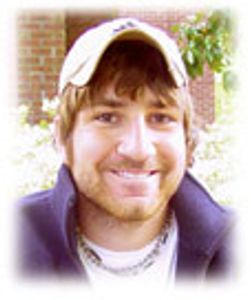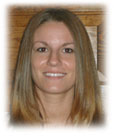
Most of the workshop participants were developers and planners and engineers and surveyors. But not all.
Seven Catawba College students took advantage of the professional workshop April 20 that featured Randall Arendt, an internationally known land-use planner and advocate of “conservation planning.” Hosted by the Catawba Center for the Environment in partnership with the N.C. Department of Environment and Natural Resources and other organizations, the workshop was held in the Center facility so it was easy for the students to drop by and soak up knowledge from experts in the field.
“The challenge in a small college is maximizing the education we offer,” says Dr. John Wear, director of the Center for the Environment. “We have a limited number of faculty and a limited number of courses we can teach, so an important function of the Center is to make these enrichment experiences available and expand our students’ horizons.”
;Corey Darnell, a freshman environmental science major from Rural Hall, N.C., aspires to be an urban planner on the city or regional level, so he viewed the workshop as an opportunity to learn more about his chosen profession.
“I think the conservation-based planning approach is really good,” Darnell says. “The number one priority is being able to plan a sustainable community where you limit the amount of trees and land you destroy. If you destroy the environment, you’re going to have problems with runoff and erosion and things of that nature.”
Planning communities around open space with amenities in the neighborhood is important, says Darnell. “If we want to live a more sustainable life and limit the amount of natural resources that we consume, this is one of the first things we have to do. The main cause of [environmental degradation] stems from where you live and how you live.”
 ;
;
Starla Allen, a junior political science major from Woodleaf, N.C., also attended the workshop because she is interested in city management. “I grew up on a farm, and my family believes in keeping the country ‘country,’” she says. “My granddad always said he hated to see the farmland paved over and developments going up. That’s what pushed me into it.”
Allen agreed with Arendt’s mission to preserve the ecosystems around cluster housing, but she wanted to see more entrances and exists from the developments. “I was surprised he didn’t have more roads incorporated into the design to reduce traffic,” she says.
She believes it is vital to develop neighborhoods where residents know one another. “I like the older communities where you get to communicate with your neighbors,” she says. “If you look at the studies, people are less likely to join gangs in neighborhoods like that and it creates a better community.”
Allen’s involvement in Catawba’s earth management class persuaded her to attend the seminar. “It has actually helped me make the decision about what I want to do after graduation,” she says.
 ;
;
Daniel Robertson, a freshman environmental science major from Little Rock, Ark., has taken advantage of the workshops and lectures throughout the year. “The main thing Randall Arendt was talking about is putting houses closer together and reducing the lot sizes so you can have more open space,” Robertson says. “Most people think that houses on smaller lots are worth less money, but he argues that it’s actually worth more money because you have all this open space next to the house which increases the home value.”
Robertson said he had not considered lot size and home orientation before the workshop. He now sees the advantage of clustering homes, making sure that all homes are situated in an area that has good drainage, and preserving open space at the same time.
“The speakers have helped me a lot,” Robertson says. “A lot of times they talk about things that aren’t addressed in classes. It gives me a new perspective.”
The professors can provide a broad-based education, but the speakers can go into more depth about a particular subject, Robertson says. “It’s been really helpful, especially some of the recent speakers who have talked about green building and green design, which is my interest.”
